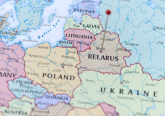 After publishing Postwar in 2005, a tour de force of European history since World War II, winning the Arthur Ross Book Award for best book in international affairs and numerous other awards, Tony Judt prepared to write an ambitious intellectual and cultural history of Twentieth Century social thought. A professor of European History at New York University (NYU), founder and director of the Erich Maria Remarque Institute at NYU, frequent contributor to The New York Review of Books, and public intellectual, Judt’s plan for his next book mothballed, as personal history intervened in the form of Amyotrophic Lateral Sclerosis (ALS), otherwise known as Lou Gehrig’s disease. By late 2008, Judt no longer had use of his hands. Two years later, he passed away.But in his cut-short life Judt produced a trove of scholarship. He wrote four books, the last of which, Thinking the Twentieth Century, is a synthetic history that serves as a marvelous homage to his life’s work, his style of thinking, and an insider’s look at a truly incandescent mind. Written with the help of a friend and Yale historian Timothy Snyder,
After publishing Postwar in 2005, a tour de force of European history since World War II, winning the Arthur Ross Book Award for best book in international affairs and numerous other awards, Tony Judt prepared to write an ambitious intellectual and cultural history of Twentieth Century social thought. A professor of European History at New York University (NYU), founder and director of the Erich Maria Remarque Institute at NYU, frequent contributor to The New York Review of Books, and public intellectual, Judt’s plan for his next book mothballed, as personal history intervened in the form of Amyotrophic Lateral Sclerosis (ALS), otherwise known as Lou Gehrig’s disease. By late 2008, Judt no longer had use of his hands. Two years later, he passed away.But in his cut-short life Judt produced a trove of scholarship. He wrote four books, the last of which, Thinking the Twentieth Century, is a synthetic history that serves as a marvelous homage to his life’s work, his style of thinking, and an insider’s look at a truly incandescent mind. Written with the help of a friend and Yale historian Timothy Snyder,
the book is a dialogue between the two men on the story Judt hoped to tell in his planned book — the intellectual and cultural history of the Twentieth Century.
By its very dialogical nature, however, it sometimes wanders afield of this story — to the great benefit of the reader. Thinking the Twentieth Century is a dense but invigorating tome, suggestive at times of a college academic bowl, replete with references to picayune events, facts, statistics, and thinkers off the historical map of even the most polymathic intellectual. It contains nine chapters, each beginning with a brief autobiographical account of formative moments in Judt’s intellectual or personal development. Among other things, the chapters cover Judt’s genealogy, his English upbringing, his fascination with Israeli kibbutzim and Zionism, his early adherence to Marxism, his sustained interest in French political and intellectual history and his interest in Eastern Europe (never fully realized by the time of his passing). In many cases, the autobiographical details run deeper and are more personal than in Judt’s other posthumous work, The Memory Chalet.
Thinking the Twentieth Century affords the reader a consummate image of Judt — uncompromising, critical, and unabashedly opinionated. Judt criticizes American foreign policy, free markets, fellow academics, Israel, journalists, and trends within the academic study of history (e.g., cultural studies are ‘jejune and callow’). Judt even attacks mainstream public intellectuals in America: he dismisses unapologetically David Brooks as ignorant — “he knows nothing” — and Thomas Friedman as nothing but a social networker — his idea of expertise is “the notion of access to something special”. Judt has his heroes, however — Albert Camus, Hannah Arendt, Arthur Koestler, Leszek Kolakowski, Eric Hobsbawm, John Maynard Keynes, Primo Levi, Léon Blum and Czeslaw Milosz, inter alia. His commendation of these Twentieth Century thinkers became the fodder for Reappraisals, published in 2008, a series of essays positioning him soundly as a first rate intellectual. After all, not many historians have the intellectual range to produce erudite essays on Primo Levi’s novels, yet also turn their attention to US diplomatic history or a profound analysis of current events for The New York Review of Books.
This book benefits from its dialogic nature and the spontaneity entailed in a conversation that “reflects the spontaneity, unpredictability, and sometimes playfulness of two minds purposefully engaged through speech”. The book’s many tangents do not detract from its quality or readability; rather, they enhance it and ensure against a formulaic, interview-style feel. In fact, although the book aims at “small truths” and focuses on topics or several topics within each chapter, it avoids what I consider the rigid feeling of a Socratic dialogue, laser-focused on discovering one, universal truth. Moreover, Judt’s mind and his mental library of thousands of books (an “improbably capacious and well-catalogued one”), commands respect even whilst Lou Gehrig’s Disease rendered his body impotent.
Yet, Judt’s is not the only mind worthy of note in this story: Snyder proves himself a brilliant and worthy interlocutor on topics of philosophy, politics and economics. Indeed, the reader walks away with the impression that very few people in the world shared the requisite reading list or were equipped to handle an intellectual conversation of this depth with Tony Judt. Thinking is a passionate indictment of simple explanations — “the urge to insist that the complex is just a disguise for the simple was one of the plagues of the Twentieth Century” — whilst simultaneously broadening and complicating the terms of many of these debates. The book’s intellectual range is, tout court, stunning, if occasionally overwhelming: Fascism and Communism, Zionism and nationalism, identity politics and cultural studies, psychoanalysis, current affairs, the role of the historian and the public intellectual. What is more, the book benefits from a delicate handling of subject matter, i.e., the twentieth century, the squalid, best forgotten, malevolent, and turbulent period, on the one hand, and the remarkably innovative, thriving, and scientific one, if only in retrospect, on the other.
Of great interest to many readers is the chapter on Judt’s transformation into a public intellectual, shortly after his arrival in New York. He and Snyder tackle some of the most vexing questions pressing on any aspiring public intellectual: what are appropriate métiers, or professions, for intellectuals to affiliate with, and how do these change over time? On what grounds may an intellectual comment on or criticize, say, the Israeli-Palestinian Conflict or the Iraq War if his or her written oeuvre hitherto consists of novels or histories of a provincial character? Which types of media contribute appropriately to a broader public conversation? Judt proffers the public intellectual as a creature of the nation, operating most effectively within a middle register of action, facing great difficulty sparking anything resembling a global conversation. It was Robert Silvers, the well-respected editor of The New York Review of Books, who urged Judt to expand his intellectual horizons: he “taught me in spite of myself that I really could do this sort of writing; that I could think and comment upon subjects far removed from my formal scholarly concerns. Silvers offered the occasion to write about things I would have thought beyond me.” This is a particularly sobering and enlightening chapter in the book for any intellectually-inclined reader. At a time when many scholars, especially in the field of history, are overly provincial, Judt sees it as the “responsibility of the intellectual” to do more than excel in his or her (narrowly) defined field, a notion lost on contemporary scholars (cf. Judt’s The Burden of Responsibility). The latter envisage their scholarship in primarily vertical terms, i.e., they move from undergraduate majors and specialty programs to even more refined graduate specialty programmes, and finally on to (hopefully) tenured professorship as one of the leading voices on some parochial subject. Whilst these scholars may indulge in areas outside of their field, such as theater, the arts, or politics, they likely consume it rather than create it. In other words, Judt excoriates — implicitly and explicitly — those historians who fail to escape this vertical conception of an intellectual career, “building a career path among historians alone”. When asked pointedly about the best way to remain critical and insightful on one’s topic, imperative to the function of a public intellectual, Judt offers a characteristic response: remain an outsider.
Judt’s thoughts are those of the spectateur engagé, to borrow Timothy Garton Ash’s phrase — the simultaneously engaged yet independent intellectual. Ironically, this is an apt metaphor for Judt’s entire life: the son of Eastern European Jews who never felt completely at home in England; an autodidact at Cambridge who never learned historiography or became part of a dedicated ‘school’; an expert by training in French social thought with serious and evolving interests in Eastern European history; and an American denizen and critic without the faintest bond to the United States. In all his various identities, historical topics, and methods, Judt remains an outsider. What makes him so trenchant is his ability to find himself on the inside of variegated debates, to pass through them with “eyes and ears wide open”, and to return “to the outside to think and write”. In sum, on a panoply of issues, Judt leaves little ambiguity where he stands; such was his wont. With the help of Snyder, he challenges comfortable historical narratives and explicates why such discomfort is part of the truth with which we must live; after all, the worst we can do is spin dulcet lies about ourselves. Mirroring the intellectuals Judt commemorates in Reappraisals and Thinking the Twentieth Century, he brims with original thought and has the courage of his convictions — both undervalued traits in his beloved twentieth century, and increasingly rare in our own.
N.B.: All quotes are from Tony Judt and Timothy Snyder, Thinking the Twentieth Century, (London: Penguin, 2012). Buy it at Blackwell’s: here.
Ryan Berg is an MPhil student in political theory at Oxford.






No Comment